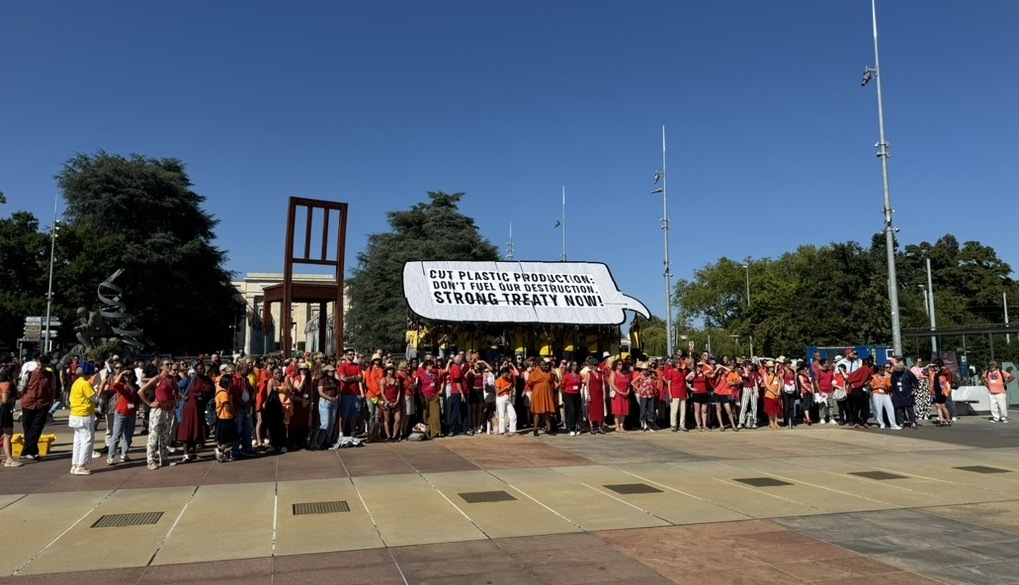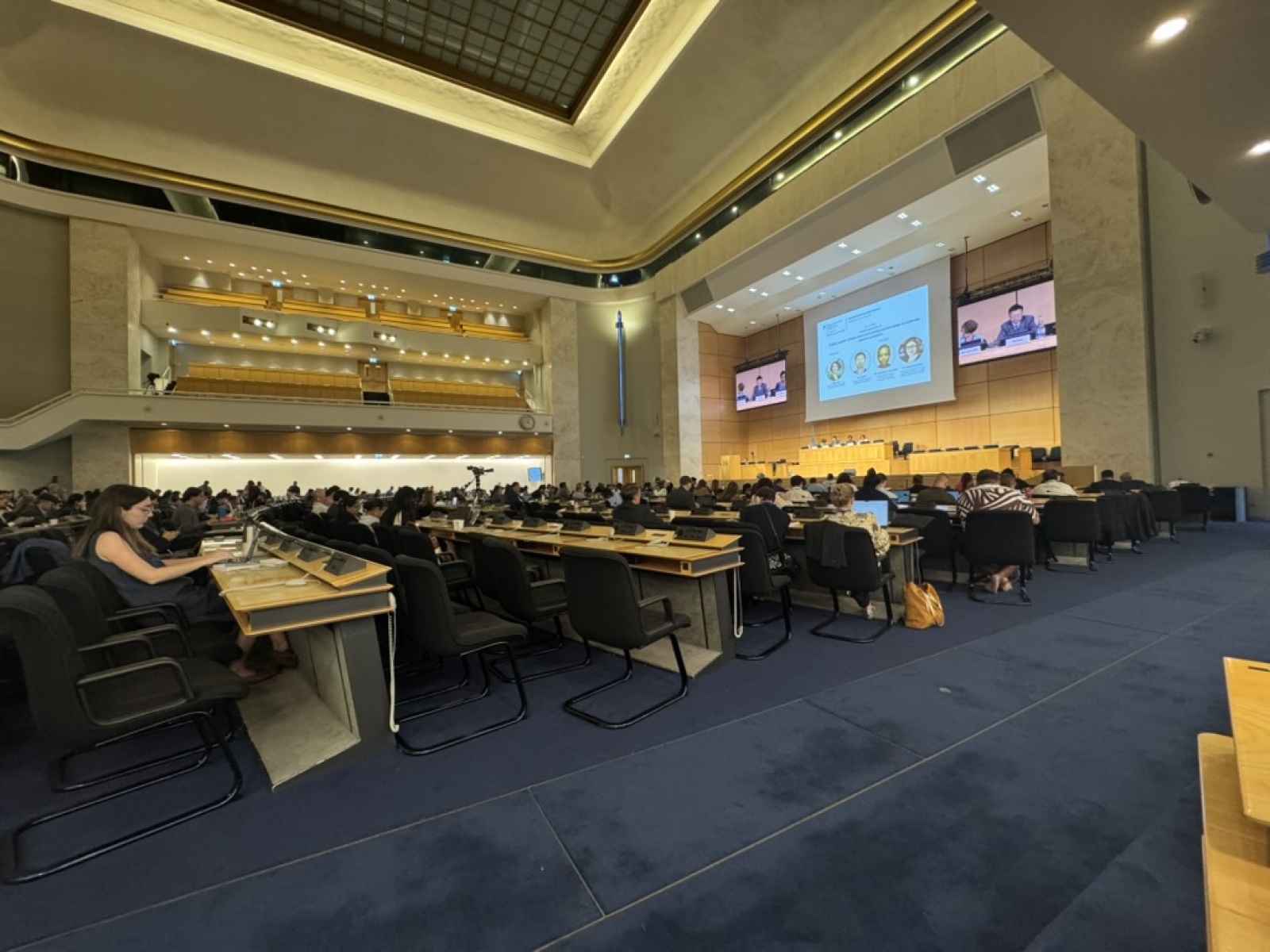In early August, around 180 countries came together in Geneva to negotiate a global treaty that should tackle the plastic crisis. Arno Doggen, Head of Development at River Cleanup, was there. The goal of the negotiation was to conclude a treaty to halt the ever-worsening plastic pollution by taking binding measures throughout the complete life cycle of plastic, from plastic production to waste processing. Unfortunately, the various countries could not reach an agreement. The conclusion of this round of negotiations is regrettably the same as that after the previous summit in December 2024 in Busan: better no treaty than a weak treaty.
Planet vs Profit
The INC-5.2 convention in Geneva was convened because the summit in Busan, South Korea, at the end of last year had not delivered the desired outcome. Already then, the various countries were clearly divided into two camps, namely the ambitious countries or the 'High Ambition Coalition (HAC)' and the oil-producing countries or the 'Like Minded Group (LMG)' supported by the fossil industry. Unfortunately, the same divisions and sticking points persisted in Geneva. The ambitious countries are pushing for a comprehensive agreement that addresses plastic's entire lifecycle. They want binding commitments to ban certain single-use plastic products and hazardous chemicals. They also want to cap new plastic production, intervening early in the plastic lifecycle - after all, plastic that's never produced can't become pollution. Without action, global plastic production is projected to triple by 2060, along with plastic waste. To keep waste streams and the broader plastic crisis manageable, these countries believe plastic production must be limited. They also want the treaty to address the plastic crisis not just as an environmental issue, but to explicitly recognize the health risks to humans. It is not just the High Ambition Coalition and NGOs that are bringing this message. The Scientists’ Coalition for an Effective Plastics Treaty, which unites about 450 independent scientists from around 65–70 countries, echoes this call. In a declaration, they describe plastic pollution as "a threat to human and ecosystem health, human rights and climate stability" and say that all measures described above are vital in combatting it.
On the opposite side stands a bloc of oil-producing nations - the United States, Saudi Arabia, Iran, Russia, India, and others - backed by industry. They're pushing for a much weaker treaty with no binding commitments or production caps. They want a deal focused solely on waste management and recycling. Their real goal is maintaining high global oil demand. By boosting plastic production, these countries are anticipating a declining oil demand as energy production goes greener and transportation electrifies. But without cutting production, pollution will only worsen while recycling continues to fall short - ultimately undermining even their own modest objectives. As River Cleanup founder Thomas de Groote told La Libre: 'As long as new plastic production remains unlimited, recycled plastic can never compete on price or quality.' With inadequate recycling infrastructure across much of the world and new plastic being so cheap, only about 9% of plastic gets recycled globally. The rest gets incinerated or ends up in landfills and the environment.
“Without drastic reduction at the source, we're just mopping the floor while the tap keeps running. Producers dump millions of tons of new plastic onto the market every year, often wrapped in green marketing or supposedly sustainable variants. If the treaty doesn't tackle this production wave head-on, nothing will fundamentally change.” - Arno Doggen, Head of Development River Cleanup
Recycling isn't the answer
While more recycling would be an improvement, it's unfortunately not a solution either. Plastic can only be recycled a very limited number of times. In practice, plastic gets recycled just once or twice - three times if you're lucky - before the quality degrades too much to remake the original product. This happens because heating the plastic breaks down the polymer chains, making it weaker and cloudier. To strengthen recycled plastic, manufacturers often add virgin plastic to the mix. After those few recycling cycles, the plastic has to be downcycled - meaning it gets turned into something that requires lower-quality plastic, like fleece clothing or car parts. These items usually can't be recycled any further. So even with a focus purely on recycling, we'd still need enormous amounts of plastic, much of which would still end up in landfills and the environment, with all the familiar consequences for both people and nature. That's why at River Cleanup we urge people to use reusable alternatives to plastic wherever possible (definitely check out our database!) and we're advocating for a strong treaty that bans single-use plastic products.
Plastic in our bodies
Contrary to what oil-producing countries claim, a strong treaty that curbs plastic production is essential. Focusing solely on recycling won't solve the problem, even if all plastic were perfectly collected and recycled starting tomorrow. Decisive solutions to the plastic crisis are absolutely critical. As everyone knows, plastic pollution has far-reaching consequences for biodiversity and nature in general, but we humans can't escape the plastic we produce either. Plastic also has an enormous impact on our bodies. Plastic particles are everywhere, and these (micro- and nano-)plastics enter our bodies through the water we drink, the food we eat, and even the air we breathe. Studies have already shown that plastic is found throughout the human body - from the brain to the placenta - meaning even unborn babies come into contact with it. Scientists have linked plastic in our bodies to various health problems including cancer, hormonal disruption, infertility, Parkinson's, and Alzheimer's. Plastic pollution is therefore not just an environmental crisis, but a health crisis too, and River Cleanup advocates for this to be explicitly recognized in the plastic treaty.
Toward a strong treaty
A strong treaty that limits plastic production, bans single-use plastic as much as possible, and recognizes the health risks of plastic pollution is absolutely vital for both people and the planet. As River Cleanup, we're therefore pushing for the strongest possible treaty - one that aligns with the original mandate for these negotiations: to conclude a binding treaty that tackles plastic pollution across plastic's entire lifecycle, from production to waste management. We call on all countries to recognize this necessity and to put our shared interests as humanity above personal gain.

-1600.jpeg)
